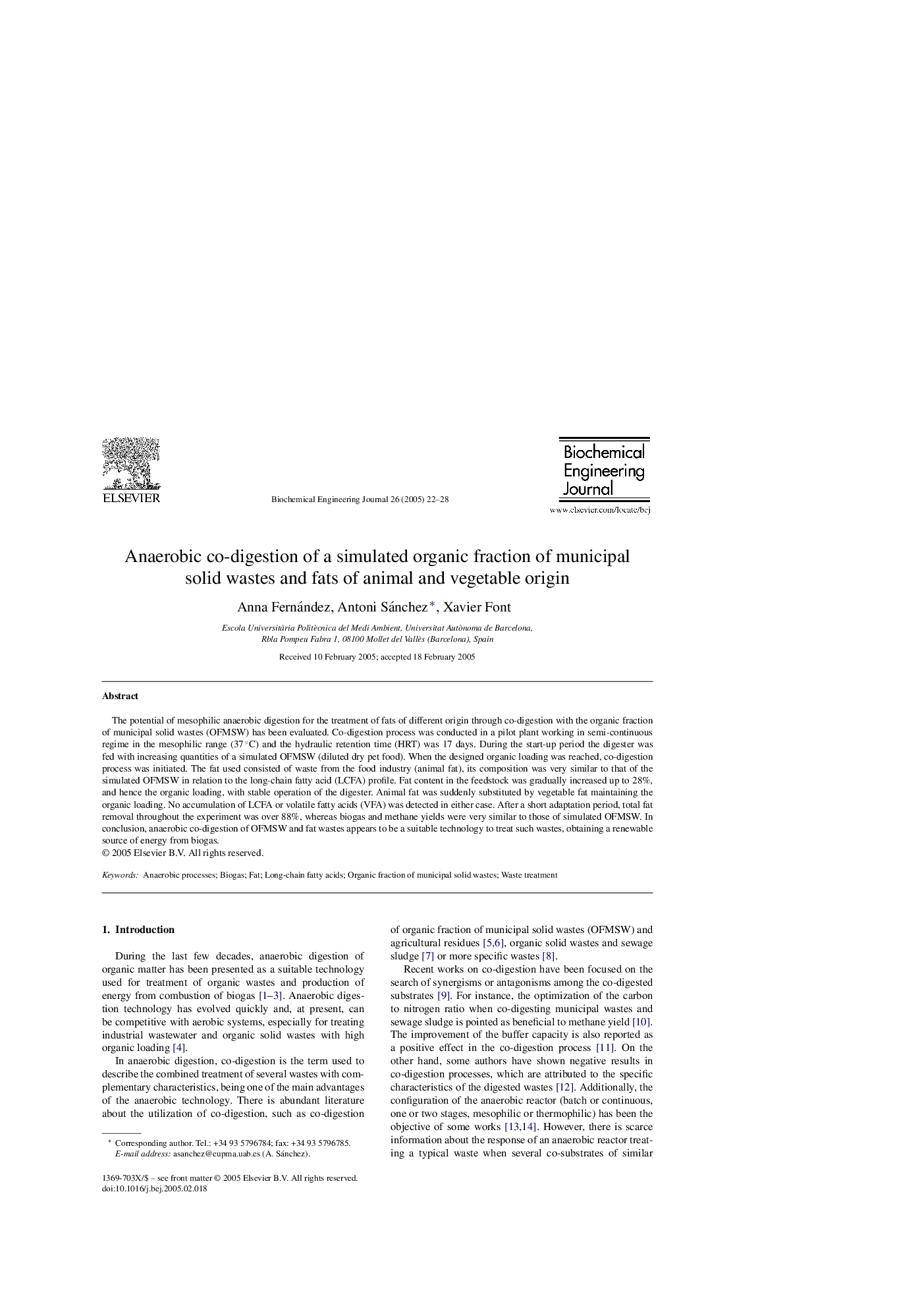| Article ID | Journal | Published Year | Pages | File Type |
|---|---|---|---|---|
| 10161100 | Biochemical Engineering Journal | 2005 | 7 Pages |
Abstract
The potential of mesophilic anaerobic digestion for the treatment of fats of different origin through co-digestion with the organic fraction of municipal solid wastes (OFMSW) has been evaluated. Co-digestion process was conducted in a pilot plant working in semi-continuous regime in the mesophilic range (37 °C) and the hydraulic retention time (HRT) was 17 days. During the start-up period the digester was fed with increasing quantities of a simulated OFMSW (diluted dry pet food). When the designed organic loading was reached, co-digestion process was initiated. The fat used consisted of waste from the food industry (animal fat), its composition was very similar to that of the simulated OFMSW in relation to the long-chain fatty acid (LCFA) profile. Fat content in the feedstock was gradually increased up to 28%, and hence the organic loading, with stable operation of the digester. Animal fat was suddenly substituted by vegetable fat maintaining the organic loading. No accumulation of LCFA or volatile fatty acids (VFA) was detected in either case. After a short adaptation period, total fat removal throughout the experiment was over 88%, whereas biogas and methane yields were very similar to those of simulated OFMSW. In conclusion, anaerobic co-digestion of OFMSW and fat wastes appears to be a suitable technology to treat such wastes, obtaining a renewable source of energy from biogas.
Keywords
Related Topics
Physical Sciences and Engineering
Chemical Engineering
Bioengineering
Authors
Anna Fernández, Antoni Sánchez, Xavier Font,
